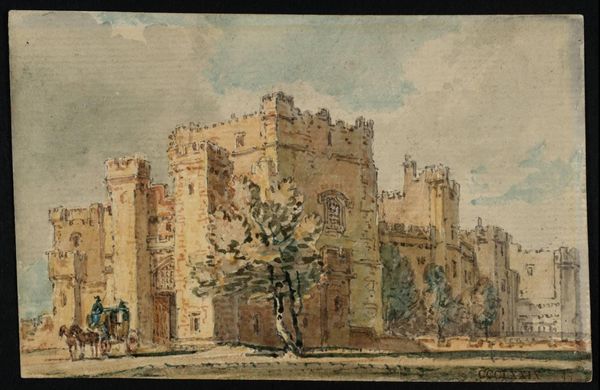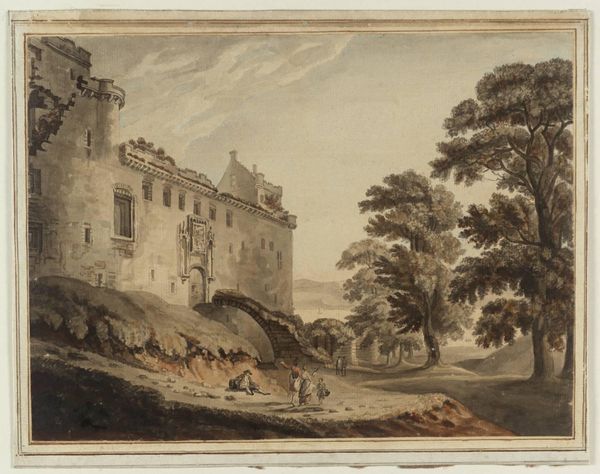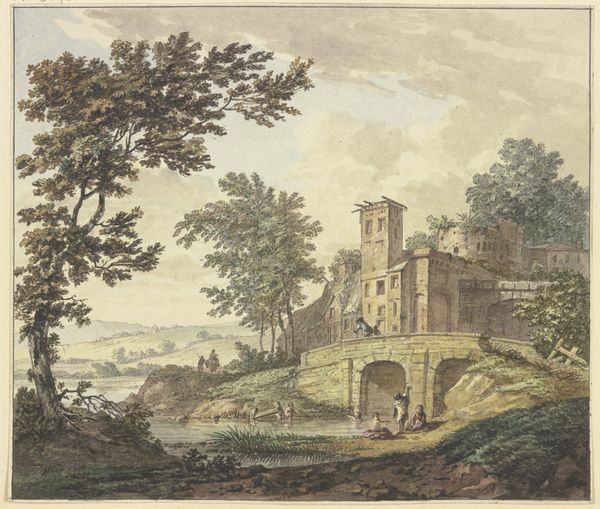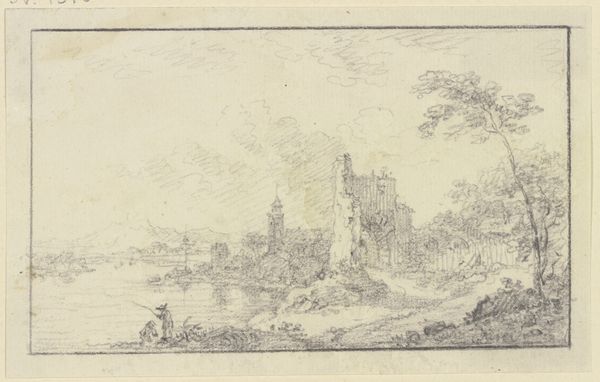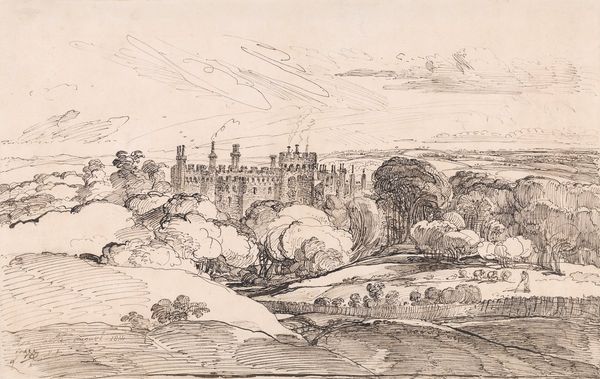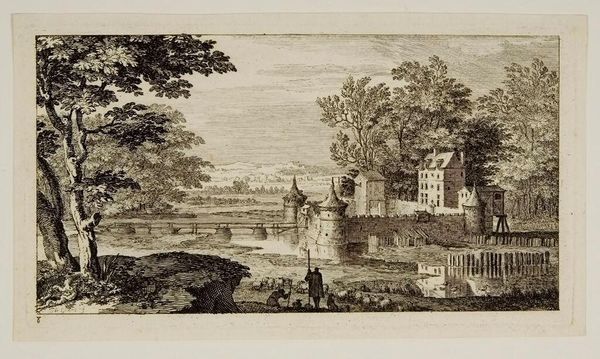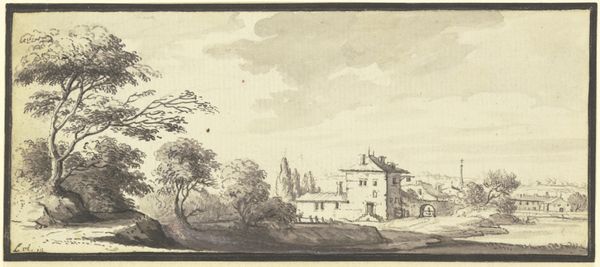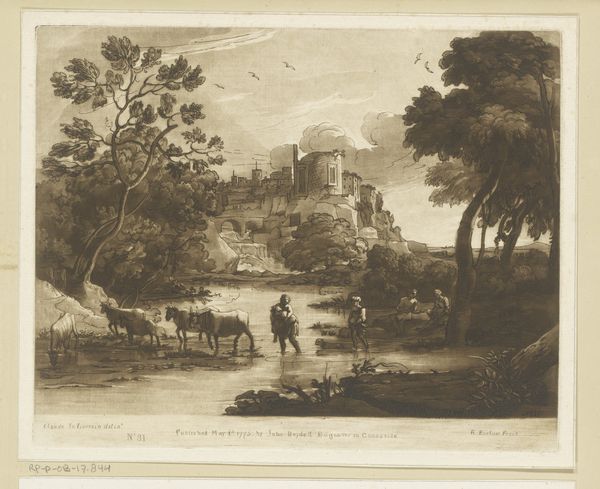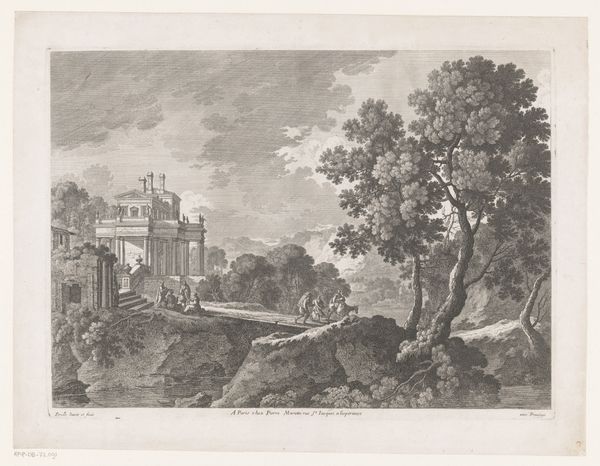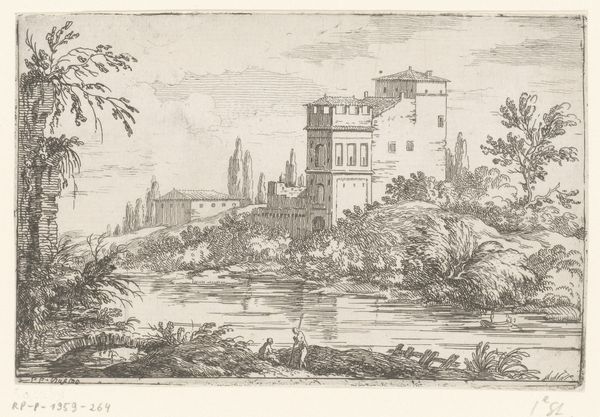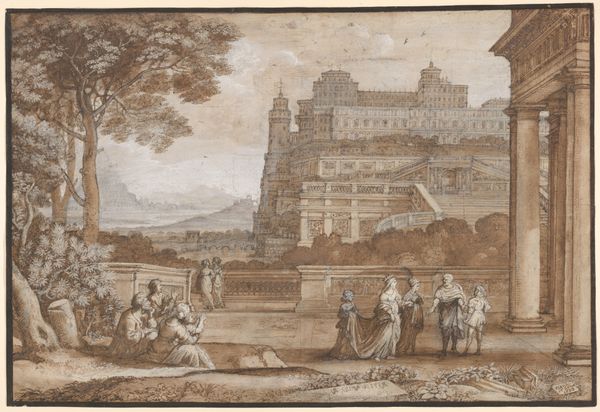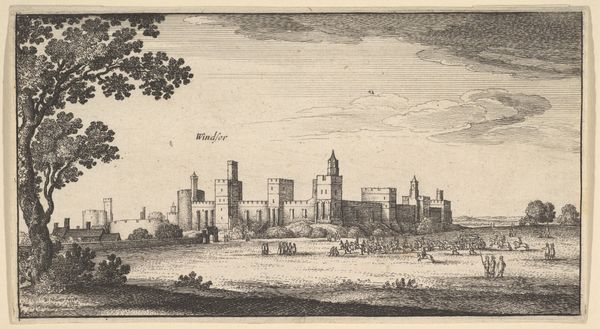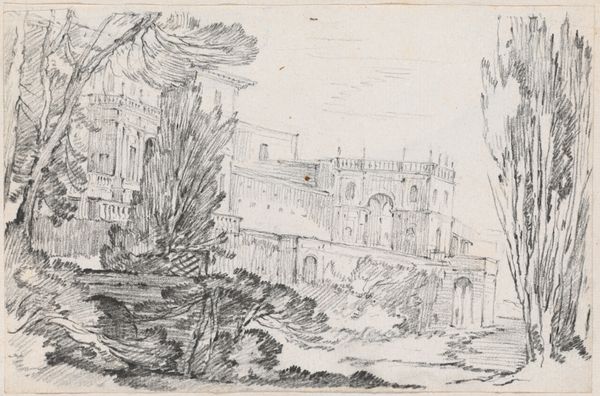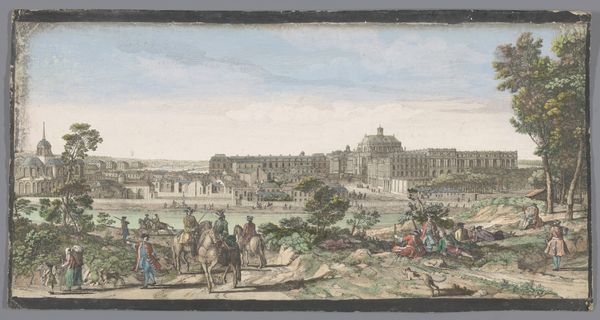
Dimensions: support: 78 x 122 mm
Copyright: CC-BY-NC-ND 4.0 DEED, Photo: Tate
Editor: This watercolor is called "Lancaster" by Thomas Girtin, and it's held at the Tate. It looks like a quick sketch, capturing the essence of the architecture and landscape. What do you see in this piece, particularly in terms of the materials and process Girtin employed? Curator: I'm struck by Girtin's efficiency here. The quick strokes, the minimal use of pigment, suggest an emphasis on the act of seeing and recording. It speaks to a changing relationship with landscape, a shift from idealized representation to a more immediate, almost industrial mode of visual consumption. How does this relate to the societal changes of the time? Editor: That's fascinating. It makes me think about how mass production was beginning to change perceptions of value and craftsmanship. Curator: Precisely. Girtin's approach reflects a negotiation between traditional artistic values and the emerging realities of a rapidly industrializing world. Editor: I never considered that connection before. It's interesting how the material choices can reveal so much about the social context. Curator: Indeed. It’s about understanding art as a product of its time, both aesthetically and materially.
